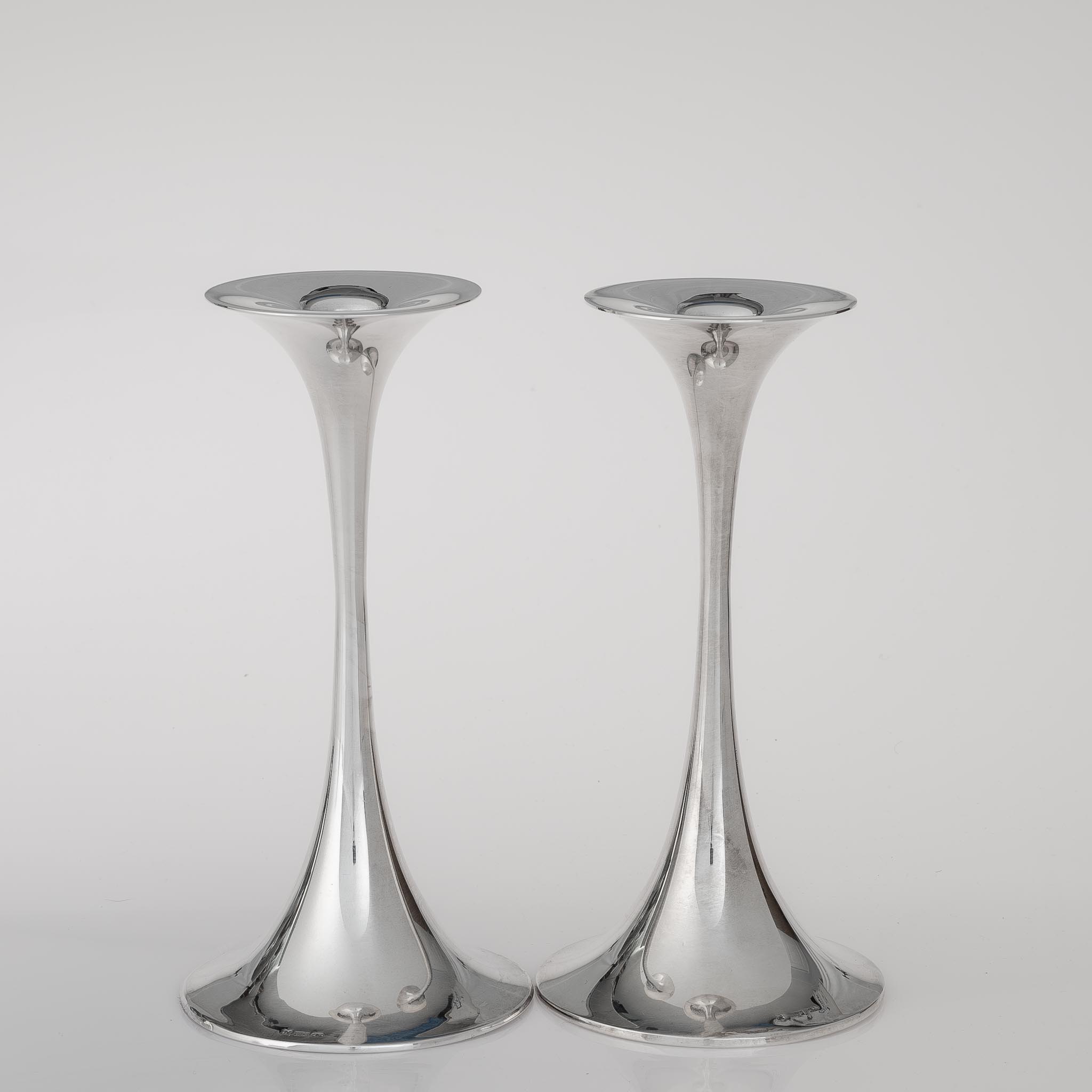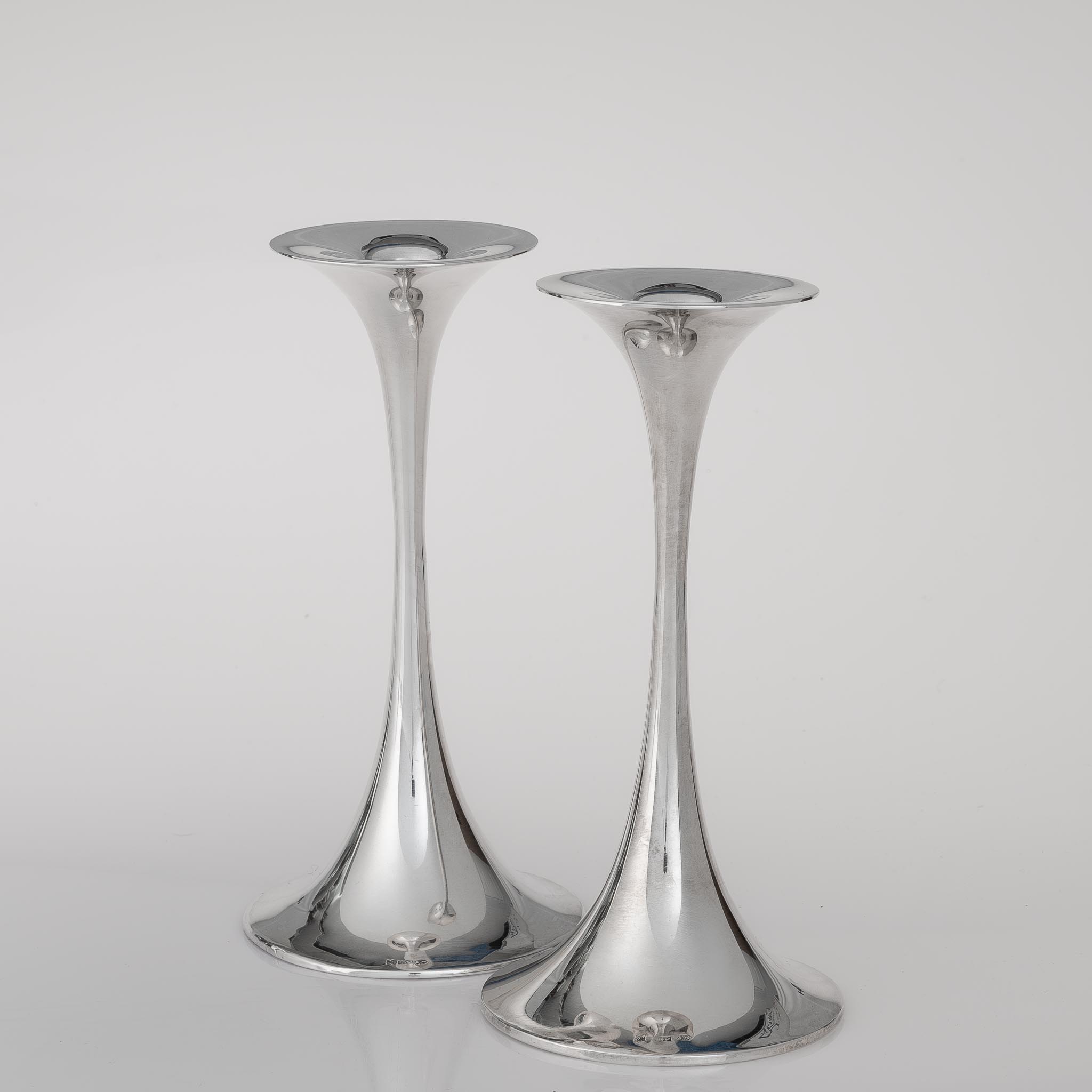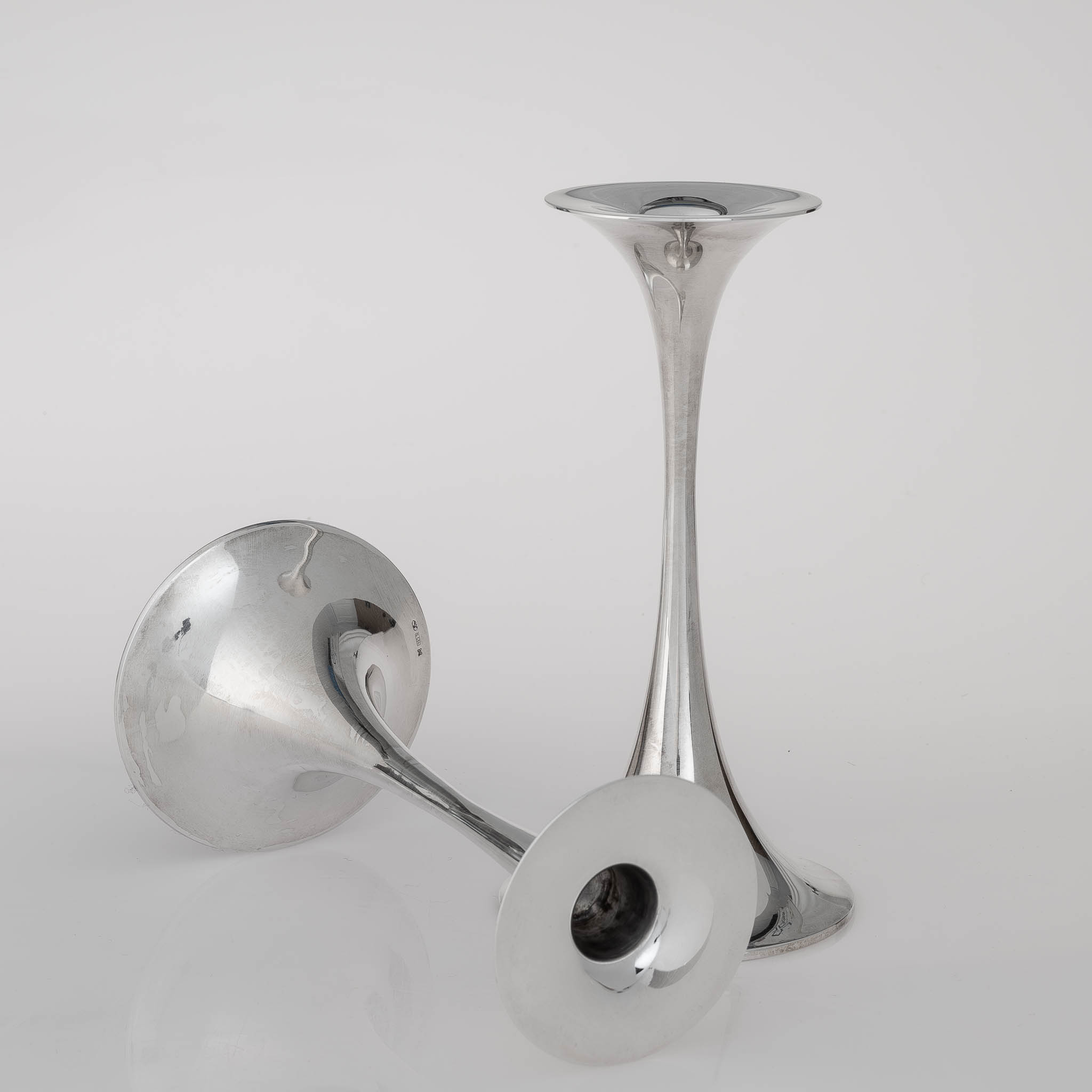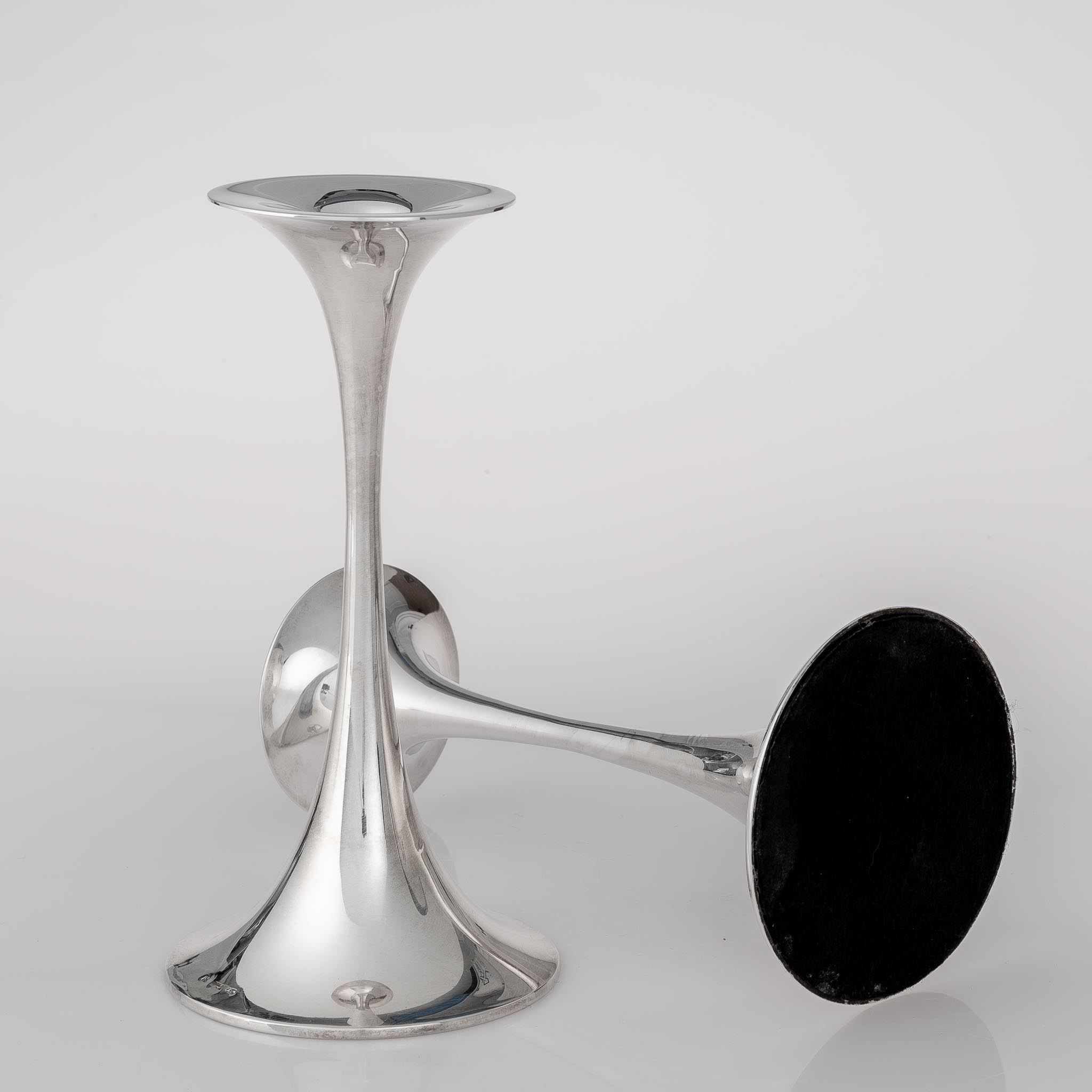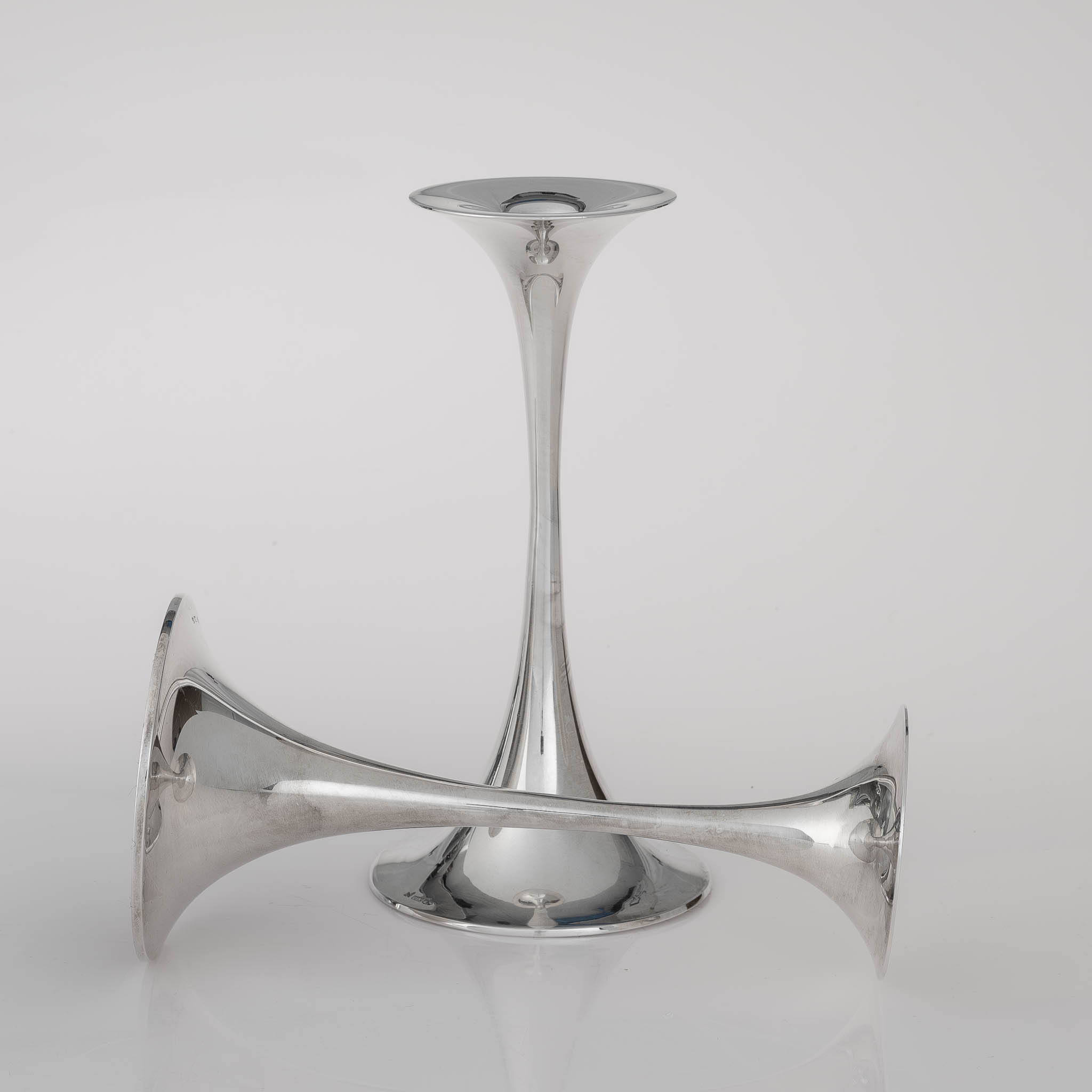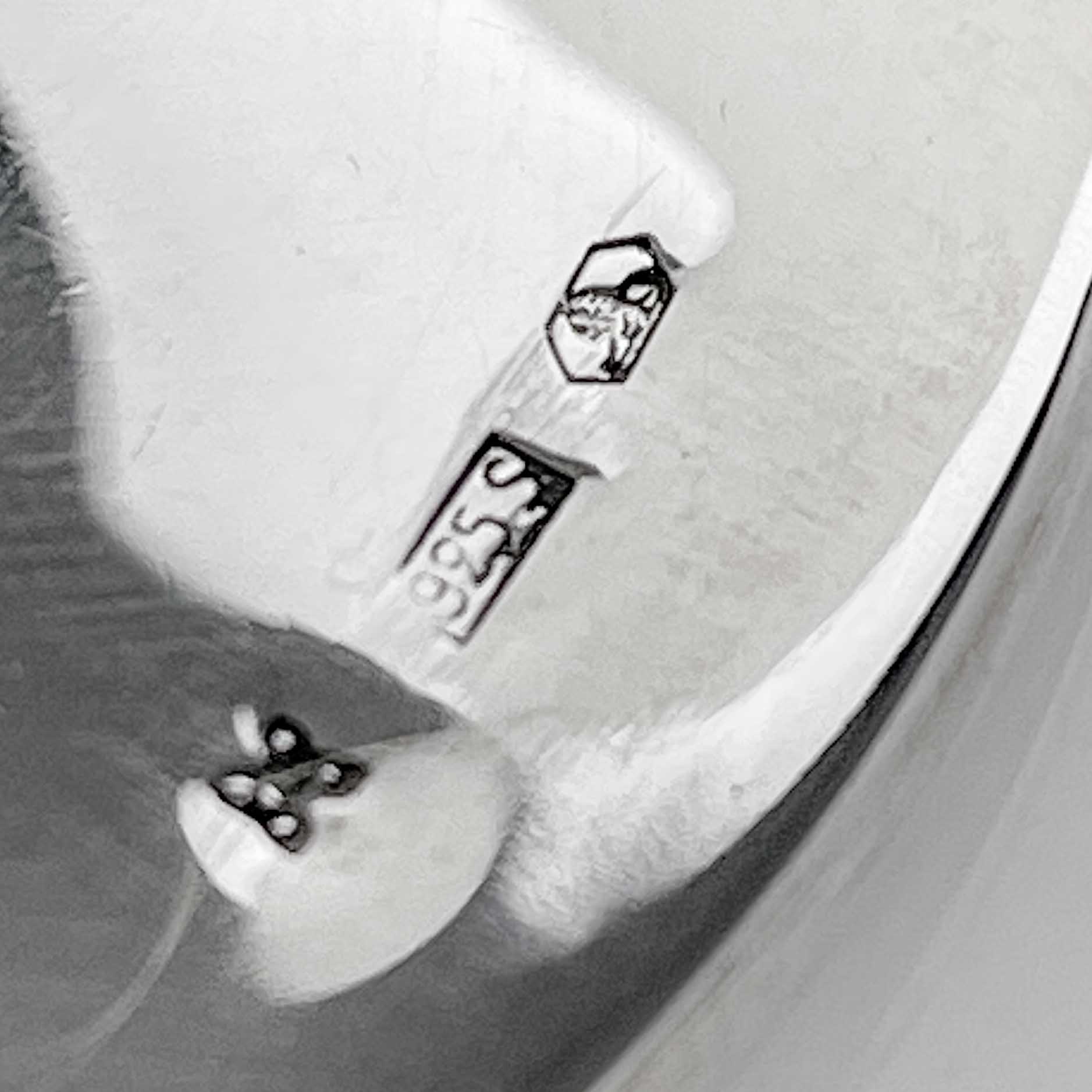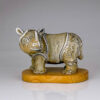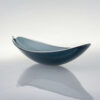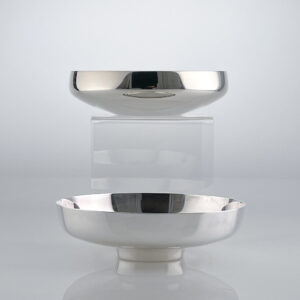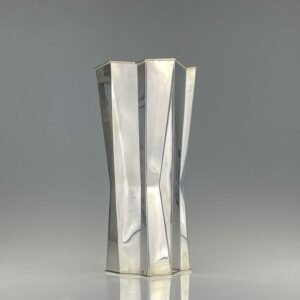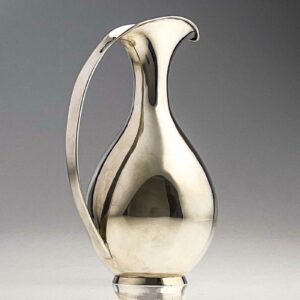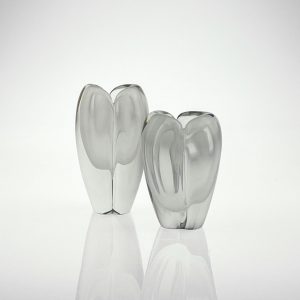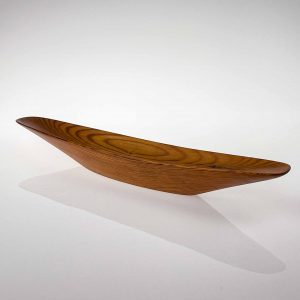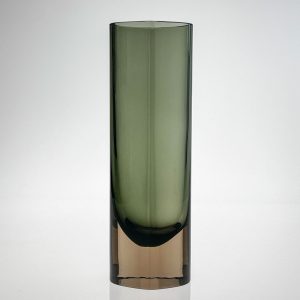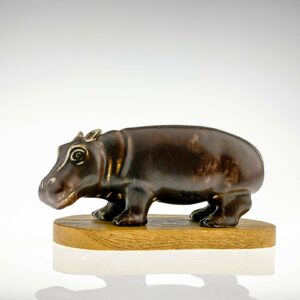| Marked | Kultakeskus Oy mark (reclining lion), Norwegian Sterling Silver mark (925S), and Norwegian import mark. |
|---|---|
| Execution | Kultakeskus Oy, Hämeenlinna, Finland 1970's. |
| Condition | This Art object is in good condition, Some minor scratches consistent with age and use. Tiny dents on the stem. No inscriptions. |
| Literature | Marianne Aav, Tapio Wirkkala eye, hand and thought: p. 395, p. 465 |
| Dimensions | Height 18 cm |
Tapio Wirkkala – A pair of Scandinavian Modern silver “Trumpetti” candlesticks, model TW 284 – Kultakeskus, Finland 1970’s
€1,850.00
Beschikbaarheid: 1 op voorraad
A pair of Sterling silver “Trumpetti” candlesticks, model TW 284. Designed by Tapio Wirkkala in 1963 and executed by the craftsmen of Kultakeskus in the 1970’s.
This model candlesticks was made in serial production in four sizes; these examples are a pair of second largest “Trumpetti’s” made and are 18 cm tall. The candlesticks have a completely smooth surface and run in a diabolo shape from the base to the chalice. A standard size candle fits in these candlesticks.
These “Trumpetti” candlesticks have very interesting hallmarks. They are marked with the Kultakeskus hallmark and must have been intended of export to Norway as they bare a Norwegian import mark and a Norwegian silver fineness mark. As is often the case in Danish and Norwegian silver they have no yearmarks, but the way of the construction with metal plate en bolt indicates that they are made in the 1970’s.
About Tapio Wirkkala
Tapio Wirkkala (1915 Hanko, Finland – 1985 Helsinki, Finland) A giant of Finnish design, possessed an extraordinary creative spirit that knew no boundaries. His artistic repertoire traversed diverse materials and transcended conventional design disciplines, leaving an indelible mark on the world of art and craftsmanship.
The trajectory of Wirkkala’s illustrious career was set in motion by a momentous glass design competition held by the revered Iittala glassworks in 1946. It was during this transformative event that Wirkkala, alongside the esteemed Kaj Franck, emerged as the joint recipients of the first prize. This recognition propelled Wirkkala into the spotlight, setting the stage for his remarkable artistic journey.
Wirkkala’s creative genius knew no bounds. His oeuvre spanned a vast spectrum, encompassing exceptionally beautiful glass art pieces, innovative industrial designs such as beer bottles and banknotes, meticulously crafted jewelry, evocative sculptures, and thoughtfully designed furniture. Each creation bore the unmistakable imprint of Wirkkala’s artistic prowess, showcasing his mastery over form, function, and aesthetics.
Throughout his illustrious career, Wirkkala amassed a multitude of accolades, honorary titles, and a doctorate, cementing his position as one of the most revered figures in the design world. His remarkable achievements include three Grand Prix medals at the prestigious Milan Triennale in 1954, followed by yet another Grand Prix medal and gold medal at the Milan Triennale in 1960. These prestigious awards not only celebrated Wirkkala’s unrivaled talent but also underscored his profound impact on the global design landscape.
Wirkkala’s creative journey was an embodiment of innovation, pushing the boundaries of design and challenging conventional norms. His unparalleled ability to infuse beauty into everyday objects and elevate them to the realm of art garnered admiration and acclaim from enthusiasts and experts alike.
Today, we celebrate Tapio Wirkkala as a visionary pioneer who seamlessly merged artistry with functionality. His enduring legacy serves as a testament to the limitless possibilities of design, inspiring generations of artists and designers to think beyond the confines of tradition and embrace their creative instincts.



